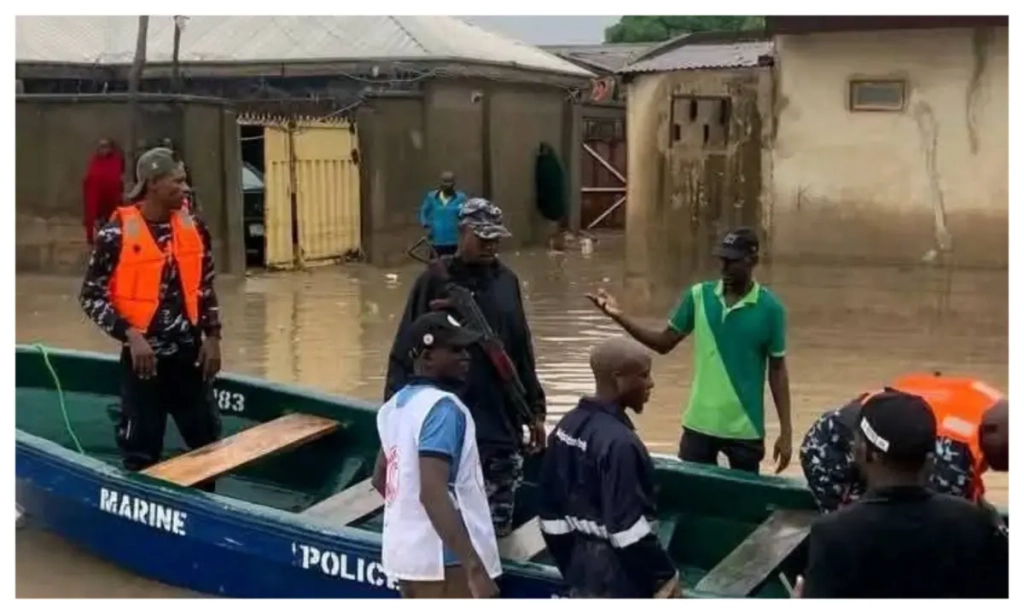The Adamawa State Government in northeastern Nigeria has pushed back against criticism over its handling of a deadly flood that struck the state capital, Yola, on Sunday. The disaster, which submerged communities in Yola South Local Government Area, left at least five people dead, injured several others, and destroyed homes and infrastructure. High-profile figures, including former Nigerian Vice President Atiku Abubakar, publicly questioned the government’s preparedness and responsiveness, calling attention to flood prevention measures in a region prone to seasonal flooding.
In a sharply worded statement issued by Governor Ahmadu Fintiri’s office, authorities rejected claims of negligence, emphasizing investments in flood mitigation infrastructure such as stormwater drains and expanded waterways. “We take exception to any insinuation that the Fintiri administration neglected the people,” said Chief Press Secretary Humwashi Wonosikou, who detailed rapid mobilization efforts led by Deputy Governor Kaletapwa Farauta. These included deploying marine police and emergency teams to evacuate residents and assess damage. The Adamawa State Emergency Management Agency (ADSEMA) also distributed relief supplies—including food, blankets, and medical aid—to displaced families within hours of the floodwaters receding.
The rebuke from officials followed Atiku Abubakar’s remarks, which spotlighted broader concerns about disaster readiness in a country where floods displace tens of thousands annually. Adamawa, like many Nigerian states, faces recurring flood risks due to heavy rainfall, inadequate drainage systems, and urban sprawl. While the state government did not directly address Atiku’s criticisms, it underscored ongoing projects to reduce vulnerability, though specifics on the scale or completion timelines of these initiatives were not provided.
Local witnesses described chaotic scenes as rising waters swept through neighborhoods, with residents scrambling to salvage belongings. Emergency responders worked through the night to assist those stranded, though challenges persisted due to blocked roads and power outages. Authorities urged affected communities to heed early warning alerts in the future, though some residents countered that alerts had been insufficient or unclear.
The incident has reignited debates about climate adaptation and governance in Nigeria’s flood-prone regions, where mitigation efforts often lag behind escalating environmental threats. With the rainy season ongoing, the state’s ability to balance immediate crisis response with long-term infrastructure upgrades remains under scrutiny. For now, displaced families continue to rely on temporary shelters and aid deliveries as cleanup efforts begin.
